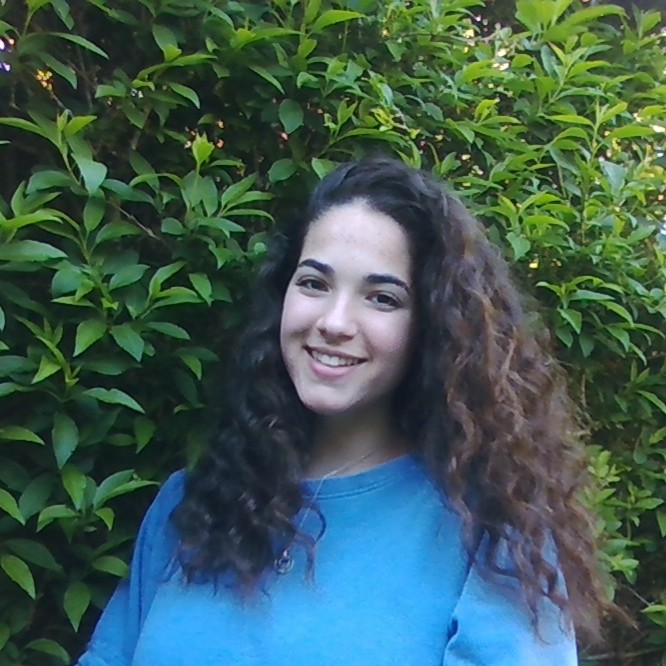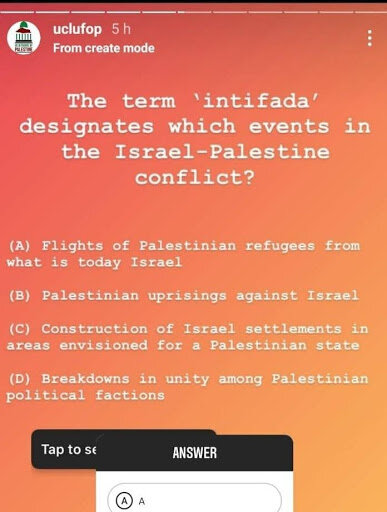Photo: Diliff/Wikimedia Commons

On October 20, UCL Friends of Palestine and UCL Arab & North African Society hosted a discussion titled “A Palestinian Tale: The Story Behind the Statistics” with Palestinian political activist and novelist Susan Abulhawa. As a strong supporter of the Boycott, Divestment, Sanctions (BDS) movement, she cannot claim to work for Palestinian rights. BDS founder Omar Barghouti states, “there’s no dialogue, co-existence … We should have co-resistance, not co-existence … there won’t be a Zionist state.” This form of advocacy has only brought harm to Israeli citizens, Jews and Arabs alike, and Palestinians. Her refusal to engage with reality and desire to perpetuate fiction – as proven at the event – only sabotages the cause she claims to be fighting for. There can only be peace and improvement when all groups in the region seek to acknowledge the Other and their narratives, rather than perpetuating conflict and violence.
On the topic of the conflict, Abulhawa stated: “language is hugely important … this is not a conflict; it is a settler-colonial enterprise.” Such a statement immediately forces Israelis on the defensive, where proving their rights of indigeneity becomes necessary.
Coloniser: “a country that sends settlers to a place and establishes political control over it.”
Does Israel really fit this definition? Modern Zionist settlers were not envoys of any particular foreign state, they were individuals who decided to return from 2000 years of diaspora. Moreover, a Jewish presence was maintained in Israel throughout the exile. To brand Israel a colonial enterprise only undermines the Palestinian cause. I, along with many other Israelis, sympathise with the plight of Palestinians and believe that they too have a right to self-determination and compensation for displacement. Sadly, attempts to forge relations to achieve these goals often deteriorate into accusatory shouting matches, as each side defends their position due to the forms of misinformation disseminated at events such as these.
“In order to create a better future for all, accurate terminology must be used, along with efforts to understand each other’s experiences.”
Being aware that my viewpoint may be shaped by an Israeli narrative, I continuously strive to understand the Palestinian perspective. Unfortunately, despite the settler-colonialist narrative being inherently flawed, Palestinian media and education continue to perpetuate this idea, breeding yet more misguided anger and violence. In order to create a better future for all, accurate terminology must be used, along with efforts to understand each other’s experiences. When Abulhawa demands the use of the inflammatory term “settler-colonial enterprise” she ensures that a meaningful conversation can never be had. Her mastery of fiction is clear in her novels, unfortunately, it is evident elsewhere too.
Later in the session, Abulhawa began to describe how Israelis are “stealing our culture” in an attempt to “indigenise themselves.” In a recent article for Al Jazeera, she spoke of Mizrahi Jews – Jews who have maintained communities in the Middle East and North Africa – describing them as “Arab Jews” who “spoke Arabic [and] ate the same foods” as their Arab compatriots. The term “Arab Jew” has been heavily criticised for its inherent paradoxy. “Arab” is an ethnicity that Jews were, for centuries, excluded from despite their hundreds of years of residence in Arab-majority nations. Attempting to post hoc define Jews as Arabs is an invalidation of the Jewish experiences and identity. With a 44.9 percent majority of the Jewish population, Mizrahi Jews form the largest demographic in Israel. It is completely inappropriate for her as an outsider to discredit thousands of years’ worth of Mizrahi Jews’ cultural development in attempts to support her radical agenda. Furthermore, it is ludicrous to say that a country “steals” the culture of its own inhabitants, for a country’s culture is formed by its citizens’ practices. How can relations be improved when she invalidates our culture to weaponise against us?
UCL Friends of Palestine seem prone to the same prejudices as their guest. A recent quiz on their Instagram account featured this question: “The term ‘intifada’ designates which events in the Israel-Palestine conflict?” answers included:

The Intifada was a series of coordinated terror attacks against Israeli civilians by the Palestinian leadership which claimed over 7,000 lives. To define the Palestinian Intifadas as the mere “uprisings” suggested by the original Arabic word, is to disregard their lives, to glorify terror and promote the deaths of both our people.
Some hope for peace lies in the university campuses of the diasporas. Advocates in the diasporas can enjoy some perspective if they educate themselves correctly, which may make it easier to acknowledge the Other’s legitimacy. Student societies need to stop fuelling the tensions with shamefully hateful and inaccurate social media posts and speakers, to concede at times and accept that the narrative they were fed may not be the whole truth. The road to peace can only be paved in this manner.
I attended the event seeking to better understand Abulhawa’s perspective, but I left with the belief that if we continue to educate activists on campus by people with such virulent rhetoric, we will never see an end to the conflict.
We must dismantle the fiction of mutual loathing advanced by the media and advocates like Abulhawa. We must ensure we are hosting speakers whose real goals are resolution and not the promotion of conflict. We must use our shared heritage, culture and experiences to mend the broken trust between our people.
The responsibility to create change lies with us.
Originally published in UCL PI Media.
Contributed by 2020-2021 University College London CAMERA Fellow Tamar Klajman.
